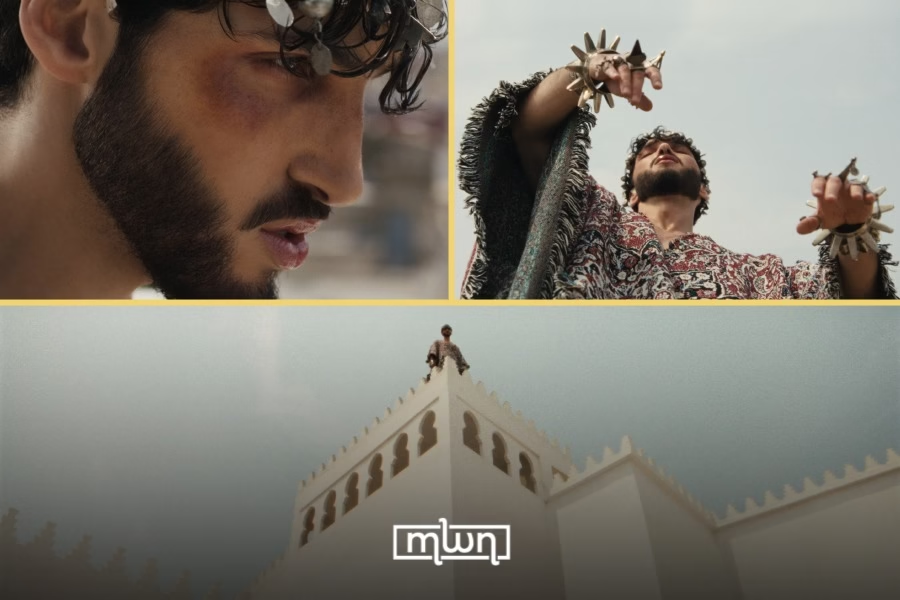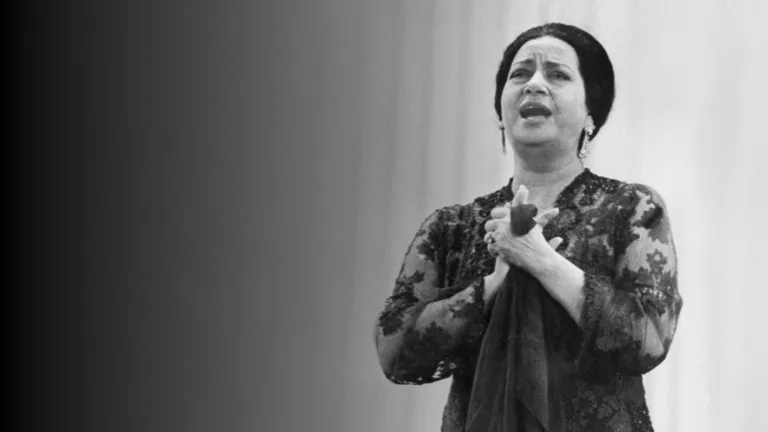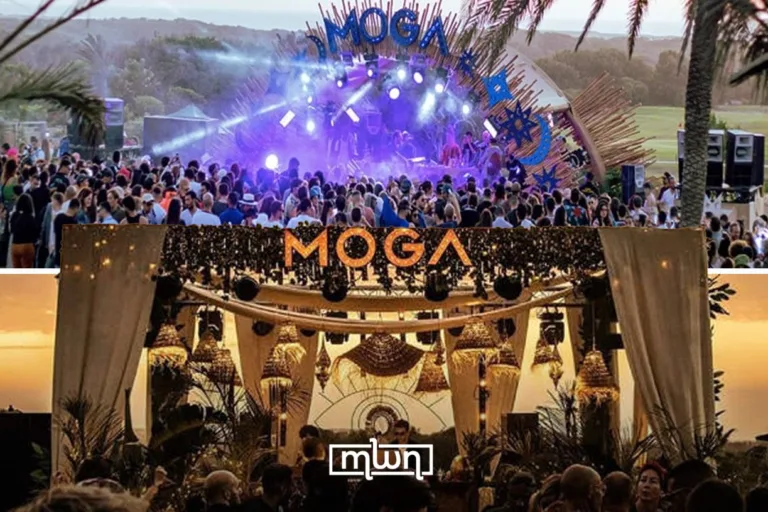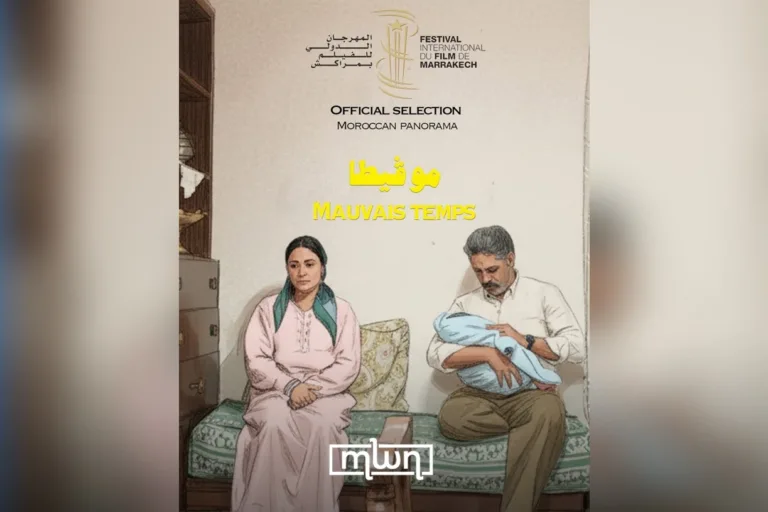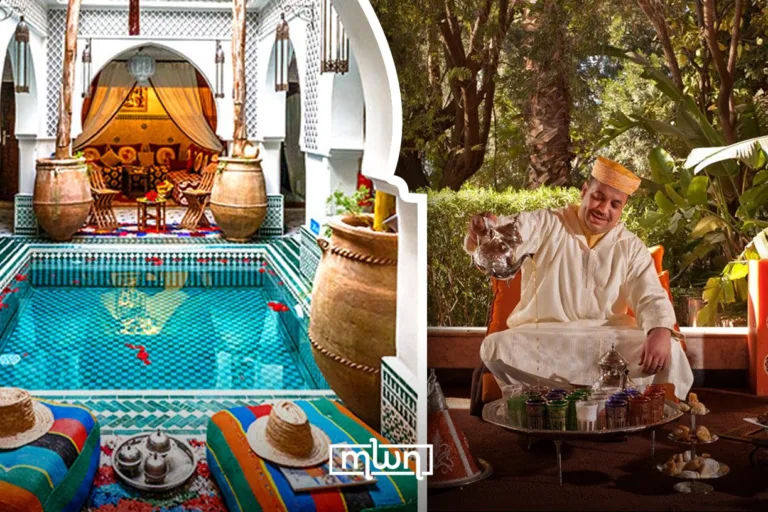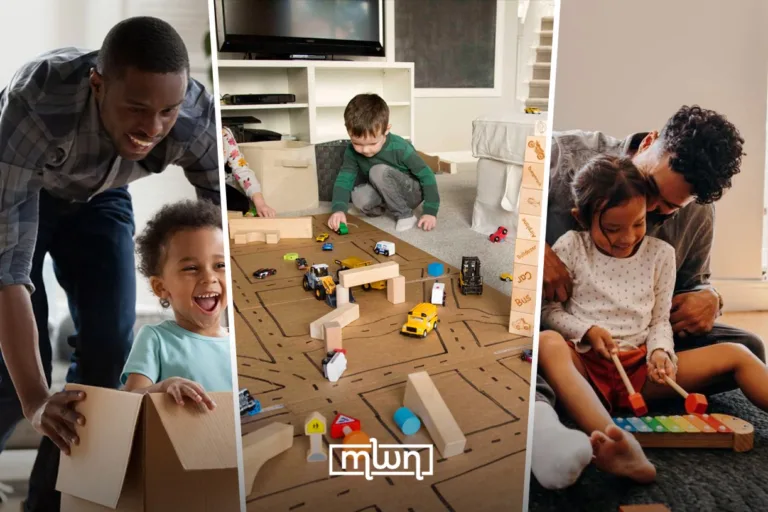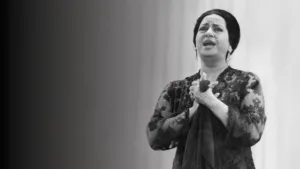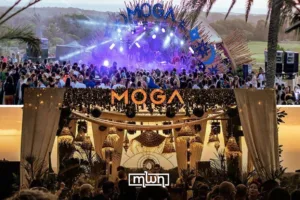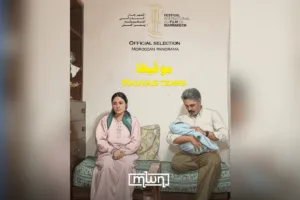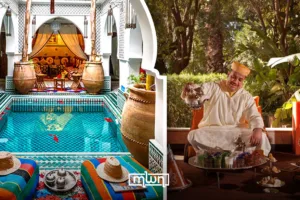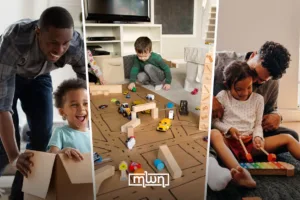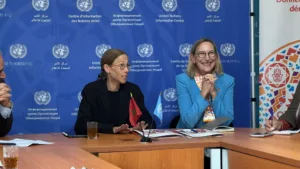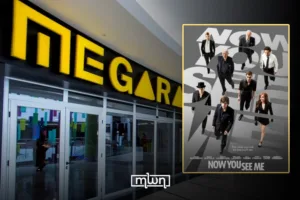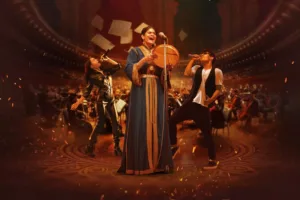Marrakech – Morocco influences, shapes, informs the structure and El Mehdi’s work, the singer and visual says in an exclusive interview with Morocco World News as he takes us deep inside his creative world. His is a creative mind that spans from Rabat’s shores to Renaissance paintings, from ancestral echoes to futuristic storytelling.
El Mehdi’s latest track “ENCORE” is already turning heads, and now, so is the mind behind it.
“My Moroccan heritage is at the very core of everything I create.”
That’s how El Mehdi opened our conversation, and the weight of that sentence hangs beautifully throughout.
“It isn’t something I simply reference,” he explained. “It’s something I carry in my body, in my voice, in the way I experience and interpret the world. And of course, music.”
The influence is as much spiritual as it is sonic. “Even when I’m not consciously drawing from traditional elements, the influence is there,” he added.
“Sometimes strong, sometimes subtle, but always intuitive.”
And while Morocco pulses through his arrangements and visuals, it also shows up in more abstract forms: his understanding of the sacred, for example.
“For me, freedom is sacred. Belonging is sacred. Love is sacred. The ability to express ourselves fully as we are is a form of spiritual alignment.”
“That’s something I inherited from my Moroccan roots, but also from questioning them,” he told MWN.
El Mehdi wrote “ENCORE” in the middle of what he calls a “particularly difficult time” in his life.
“The song came to me, almost as an urgent need to articulate feelings I couldn’t fully understand just yet,” he mentioned to MWN.
It didn’t arrive fully formed. “It had many lives,” he said. “It evolved alongside me, shifting and transforming through different arrangements and phases. There were moments when I almost abandoned it, but it kept resurfacing.”
The track eventually became something more – “a song about resilience and transformation. About being able to transmute darkness into light, pain into something beautiful. Writing it was both a release and a way to make sense of the inner turmoil.”
Between nostalgia and disruption
There’s a quiet power in how El Mehdi talks about legacy — not just preserving it, but interrogating it.
“I want to preserve and celebrate our stories. The battles, the victories, the rituals, the resilience,” he stated. “But also highlight the stories that were once silenced.”
For him, it’s about breathing life into something that’s too often boxed into the past.
“My goal is to make tradition feel alive again, not frozen in obsolete narratives that only serve a certain group of people,” he highlighted.
“To reinterpret it so it speaks to us today… to all the voices that have been pushed to the margins.”
Culture, for him, isn’t a tightrope. It’s a wide, open field – “I want people to carry their heritage with pride, without feeling the need to compromise any aspects of their identity… Culture is not conditional.”
Home is a feeling, and sometimes it smells like sea salt
“I feel most at peace near the sea,” he added, whether in Rabat, where he was born, or “Agadir, Tangier, or even Dakhla.”
The ocean is a space of grounding and clarity. But he’s learned to find stillness in other places, too.
“Whether surrounded by nature or in the heart of the medina, what truly matters is giving myself the mental space to create.”
Three unexpected words: ‘Hlowa, skhoon, fdoli’
Asked to describe his sound in three words, he responds without skipping a beat: “Hlou, skhoon, fdoli.”
Translation? Sweet. Warm. Slightly off-beat, playful. And that tracks. If you’ve ever been immersed in one of his tracks or music videos, you know: it’s never just about sound. It’s about atmosphere.
Music vs visuals: who leads who?
“It really depends,” he answered.
“Sometimes a melody or even a single word sparks an entire visual world in my mind. Other times, an image or a concept inspires me to translate it into music.”
Often, the two arrive hand in hand. “I frequently envision entire music videos while still writing the song.”
And if you follow him on Instagram, you’ll know: the visuals aren’t an afterthought. They’re storytelling, memory and mood all at once.
“I’m drawn to anything that feels romantic, melancholic, and above all, timeless,” he shared.
“My visual world is shaped by memories: personal, collective, and imagined… I love weaving old tales with new truths to create a space suspended in time.”
Fashion is part of the story, too — just not on Tuesdays
His aesthetic might be dreamy and cinematic, but don’t expect him to be overly precious about it 24/7.
“In my everyday life, it’s quite the opposite,” he laughs. “You’ll usually find me in a basic tee, a cap, joggers, and sandals or belgha.”
That said, when it comes to his art, fashion is very much part of the process.
“Styling is a deeply personal process for me,” he said.
“For my upcoming project, I designed and crafted all the looks myself.” But he’s open to creative collaborations — if the vision aligns.
Because for El Mehdi, it always comes back to intention. “What truly matters is the storytelling,” he emphasized.
So what do we think? I think “hlou, skhooun, fdoli!”
El Mehdi’s work doesn’t just speak. It sings, it questions, it reimagines.
It holds space for memory and hope at once. Morocco is present in every note, yes — but so is the possibility of something new.
As he says himself, “Morocco isn’t just a backdrop in my work. It’s the core of its structure.” And if ENCORE is any indication, that structure is only getting stronger, at its core!

